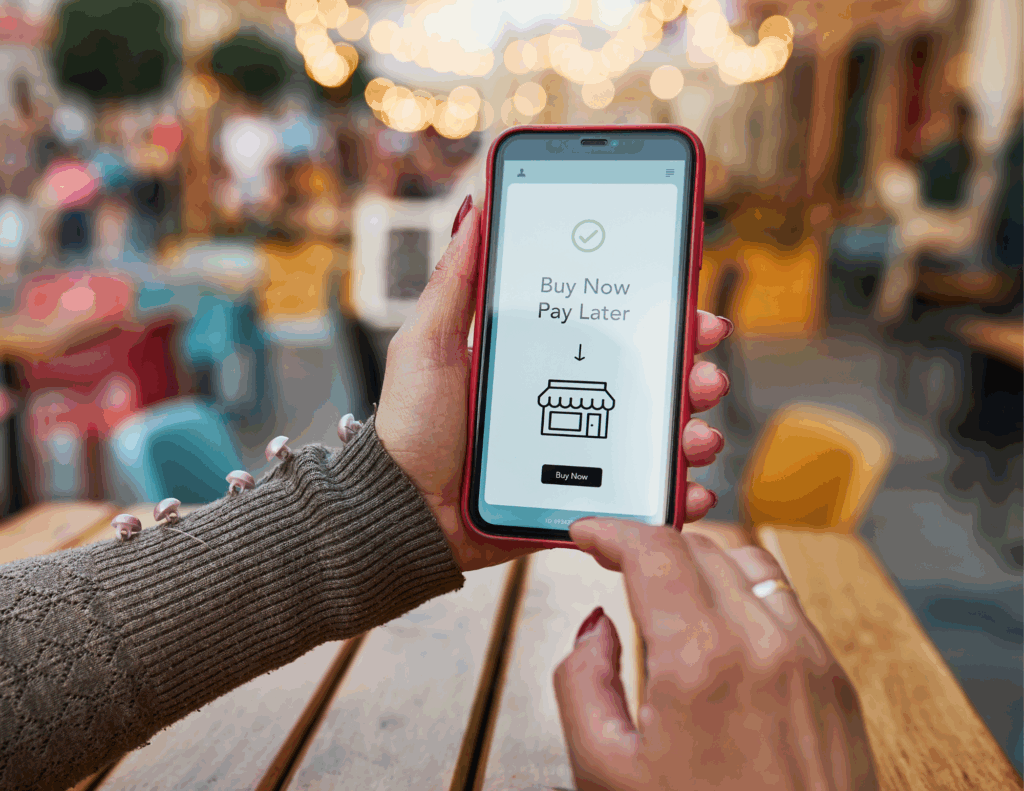The consumer protections that apply to “buy now, pay later” (BNPL) credit are now uncertain after the Consumer Financial Protection Bureau (CFPB) withdrew its interpretation that BNPL providers must provide many of the same rights to consumers that they would have with a credit card. Although the ability to split a purchase into four payments with no interest can be an attractive alternative to using a credit card, BNPL credit – in products such as Klarna, afterpay, sezzle, affirm, PayPal, and splitit – also poses risks.
Among those risks, problems can arise if you don’t get what you paid for or return a purchase but the BNPL provider insists on collecting the BNPL loan. BNPL accounts can be hacked, leading to unauthorized charges the consumer did not make, and BNPL accounts can contain errors in charges, fees, or payment credits. BNPL providers can charge late fees and other fees, which are not always clearly disclosed, and tracking multiple purchases and payment dates can be difficult.

In all of those situations, if a credit card is used, people have clear rights under the Truth in Lending Act (TILA). In 2024, the CFPB issued a detailed interpretive rule explaining why BNPL accounts are a form of credit card, but in April 2025, new leadership at the CFPB withdrew the interpretive rule.
Nonetheless, the withdrawal of the rule carries little legal significance, as the CFPB did not state that the prior interpretation was wrong, and even if it had, the CFPB did not provide detailed or persuasive reasoning refuting the prior interpretation. Courts are still free to consider the 2024 interpretation in assessing how TILA applies to BNPL accounts. Whether BNPL providers will continue to give consumers TILA rights and whether courts will require them to do so remain to be seen.
Below are the TILA credit card rules that apply to BNPL accounts under the CFPB’s 2024 interpretative rule. BNPL providers should consider these as best practices regardless of whether or not they are required. States should also consider adopting the protections above and others to address the risks of BNPL loans. Many of those protections are included in New York’s new BNPL law.
Clear account-opening disclosures
Some BNPL providers charge no fees whatsoever; others charge late fees, subscription fees, bounced payment fees, and other fees. When a consumer opens a credit card account, TILA requires clear information about fees and pricing using the “Schumer box” chart.
Statements
When an account has a balance, TILA requires credit cards to provide statements showing charges made, fees, payments and credits applied, amounts due, and due dates, as well as where to send billing disputes. BNPL users also need this information.
Time to pay before late fees or negative credit reporting
Under TILA, credit cards can only charge a late fee, report a payment as late to credit bureaus, or take other negative action for a late payment if a statement is delivered to the consumer at least 14 days before a payment is due. Regarding negative credit reporting, current industry guidelines specify that an account is reported as late only after 30 days have passed since the due date.
Dispute rights
Credit cards have several rights that are also important for BNPL users in the event of a dispute or unauthorized charge.
- Right to withhold payment for problematic purchases. People who do not get what they paid for using BNPL credit, return an item, or have another problem with a purchase may be caught in the middle, stuck making the BNPL payments. Under TILA, consumers have the right to dispute charges and withhold payment until the dispute is resolved. Lenders cannot demand payment or report the consumer as late during the investigation of the dispute.
- Protection against errors. If there is a mistake on the account, such as an improper or duplicate charge, a payment that was not applied, or a fee that should not have been charged, consumers have the right to challenge the error or charge and require an investigation by sending a written dispute within 60 days of the statement where the error appears. Pending the investigation, the consumer can withhold payment on the disputed amount. If the lender concludes that the payment is due, the consumer must be given at least 10 days to pay.
- No liability for unauthorized use. Consumers cannot be held liable for more than $50 if someone uses their credit card without their permission and the same rule should apply for BNPL accounts. (In practice, most credit card companies will also protect consumers from that first $50.)
Even if these TILA credit card rules apply to BNPL credit, the loans pose other risks not addressed by TILA. States may address some of those risks. For more information, see Risks and Advice for Buy Now, Pay Later Borrowers.
See all resources related to: High-Cost Credit